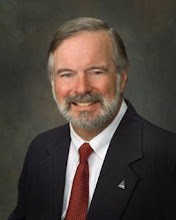Quoting from the linked discussion site on Amherst's web page:
President Marx’s Response
May 12, 2010Dear Rob and Bill,
Thank you for taking the time to write about an issue about which I care deeply. I am grateful for the opportunity to engage the wider Amherst College community in a discussion about the values that are most important to us and the transformative power of the education students receive here. This kind of thoughtful debate is the essence of the place.
Although your question was raised in the context of Amherst’s ongoing Lives of Consequence campaign, the phrase is actually excerpted from the opening sentence of the College’s mission statement:
Amherst College educates men and women of exceptional potential from all backgrounds so that they may seek, value, and advance knowledge, engage the world around them, and lead principled lives of consequence.
This mission was articulated through an inclusive process through which many students, faculty, alumni, parents, staff and Trustees shared their understanding of the College’s work. The response was overwhelming and it was heartening to see how broad and deep the agreement is across various groups and generations about what brings us together on this campus and what Amherst aims to do.
The phrase “principled lives of consequence” was coined by two alumni and has been widely embraced, even though we may all define the term slightly differently. We have made a point of inviting students, faculty and staff to articulate what they think comprises a principled life of consequence, and you can hear their thoughts on our Web site as well as contribute your own. I am heartened that few are distracted by the occasional and peripheral trappings of making a difference—wealth, fame, the approval of others. Rather, and rather interestingly, our understanding of a life of consequence is defined not by what we ourselves receive, but by what we give to others.
What I think all conceptions of the phrase have in common is simply this: that one consciously chooses to devote part of one’s life to something beyond oneself, whether through family, career or any other means. That is an open-ended ambition, but it is not a small one, and it is all too often forgotten. The College’s motto embodies it, without defining the path. That is as it should be; there is no single way to lead a life successfully.
As I talk with the seniors about to graduate in these last weeks of term, I tell them that it is the small choices we make on a daily basis—ones that may not even seem significant—that over time lead us toward that principled life of consequence to which we aspire, to a moral life. We may choose to offer help that is needed, to continue striving for a goal after a painful setback, to be present for a child who needs our attention, to speak truth to power, or just to be honest with ourselves. These are the kinds of choices that we work to model for our students even as we seek to teach them to define their values and ideals and try to live up to them. I have consistently sought to make that message clear.
Amherst is an extraordinary institution in many ways, but perhaps most in the alumni it produces. I am proud to be a member of a community that cares deeply about ideas and the world; a community that strives to do better and asks itself to examine its values often. I will not apologize, then, for holding up as examples some of the remarkable alumni who have inspired me and many others. What I hope you and many alumni will also do is share with us the lives you know by nominating one of your classmates or friends to have their story featured on Amherst’s Web site as a principled life of consequence—celebrating not just public accomplishment, but the more quiet and powerful forms of consequence we all aspire to at home, at work and in our communities.
Terras Irradient!
Tony Marx

No comments:
Post a Comment
Please use no profanity in your comments. My granddaughter and other young people will be reading this blog. Thank you.
-Duncan